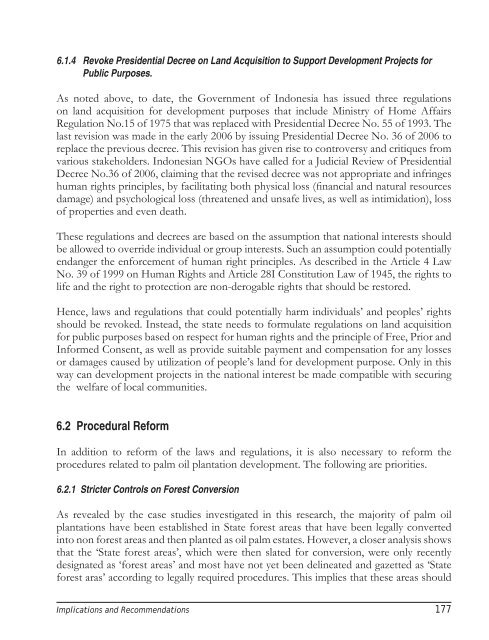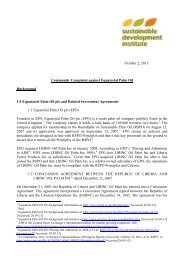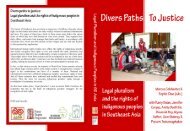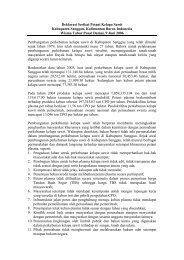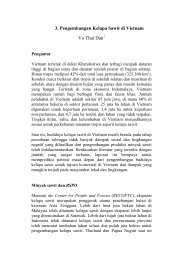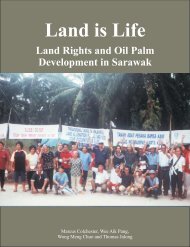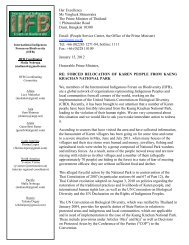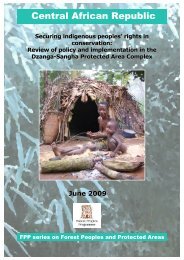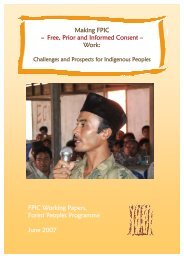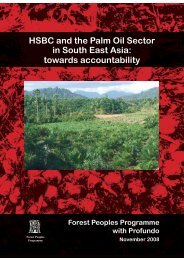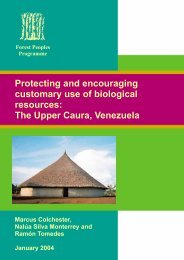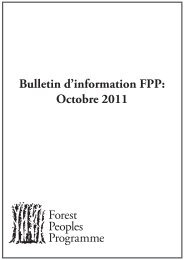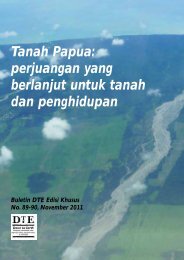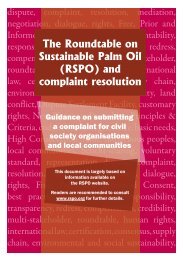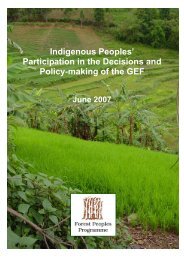Final Land Acquisition Book English.indd - Forest Peoples Programme
Final Land Acquisition Book English.indd - Forest Peoples Programme
Final Land Acquisition Book English.indd - Forest Peoples Programme
You also want an ePaper? Increase the reach of your titles
YUMPU automatically turns print PDFs into web optimized ePapers that Google loves.
6.1.4 Revoke Presidential Decree on <strong>Land</strong> <strong>Acquisition</strong> to Support Development Projects for<br />
Public Purposes.<br />
As noted above, to date, the Government of Indonesia has issued three regulations<br />
on land acquisition for development purposes that include Ministry of Home Affairs<br />
Regulation No.15 of 1975 that was replaced with Presidential Decree No. 55 of 1993. The<br />
last revision was made in the early 2006 by issuing Presidential Decree No. 36 of 2006 to<br />
replace the previous decree. This revision has given rise to controversy and critiques from<br />
various stakeholders. Indonesian NGOs have called for a Judicial Review of Presidential<br />
Decree No.36 of 2006, claiming that the revised decree was not appropriate and infringes<br />
human rights principles, by facilitating both physical loss (financial and natural resources<br />
damage) and psychological loss (threatened and unsafe lives, as well as intimidation), loss<br />
of properties and even death.<br />
These regulations and decrees are based on the assumption that national interests should<br />
be allowed to override individual or group interests. Such an assumption could potentially<br />
endanger the enforcement of human right principles. As described in the Article 4 Law<br />
No. 39 of 1999 on Human Rights and Article 28I Constitution Law of 1945, the rights to<br />
life and the right to protection are non-derogable rights that should be restored.<br />
Hence, laws and regulations that could potentially harm individuals’ and peoples’ rights<br />
should be revoked. Instead, the state needs to formulate regulations on land acquisition<br />
for public purposes based on respect for human rights and the principle of Free, Prior and<br />
Informed Consent, as well as provide suitable payment and compensation for any losses<br />
or damages caused by utilization of people’s land for development purpose. Only in this<br />
way can development projects in the national interest be made compatible with securing<br />
the welfare of local communities.<br />
6.2 Procedural Reform<br />
In addition to reform of the laws and regulations, it is also necessary to reform the<br />
procedures related to palm oil plantation development. The following are priorities.<br />
6.2.1 Stricter Controls on <strong>Forest</strong> Conversion<br />
As revealed by the case studies investigated in this research, the majority of palm oil<br />
plantations have been established in State forest areas that have been legally converted<br />
into non forest areas and then planted as oil palm estates. However, a closer analysis shows<br />
that the ‘State forest areas’, which were then slated for conversion, were only recently<br />
designated as ‘forest areas’ and most have not yet been delineated and gazetted as ‘State<br />
forest aras’ according to legally required procedures. This implies that these areas should<br />
Implications and Recommendations<br />
177


